Supporting Kafaalah Care for Children in Kenya
A glimpse into Changing the Way We Care’s work with Islamic faith communities and government leaders to promote family-based care for children in Kenya.
Supporting Kafaalah Care for Children in Kenya
A glimpse into Changing the Way We Care’s work with Islamic faith communities and government leaders to promote family-based care for children in Kenya.
Throughout Kenya, Changing the Way We Care (CTWWC) is working with the Directorate of Children Services (DCS) as well as national and local partners, so that all children can grow up in family care rather than residential care facility (commonly known as “orphanages”).
One of the ways CTWWC does this is by supporting and promoting Kafaalah, which is an alternative family care option practiced by many members of the Islamic faith around the world. It is the commitment by an individual or family (Kafiil) to voluntarily care for a child who needs protection and care.
One of the ways CTWWC does this is by supporting and promoting Kafaalah, which is an alternative family care option practiced by many members of the Islamic faith around the world. It is the commitment by an individual or family (Kafiil) to voluntarily care for a child who needs protection and care.
Kafaalah means to care for a child in the same way a biological parent would, while ensuring the child does not lose their identity, as guided by Islam. According to data collected by CTWWC and DCS, an estimated 69% of children in Kafaalah are being cared for due to the death of one parent, 11% due to total orphanhood and 20% due to a caregiver falling ill.
According to the Islamic and Kenyan law and standards, all children have a right to know their lineage, culture, linguistic and spiritual identity. Children in Kafaalah have access to a home, family, love, support, protection, and the continuation of spiritual and cultural development they may not get through residential care.
In Kafaalah, a child keeps their birth family’s name and the right to inheritance from the birth family. The Quran emphasizes the importance of taking care of children in need of a family. Kafaalah practice is encouraged among Muslims – not only as an act of goodwill, but as a religious and moral homage.
Most children placed in Kafaalah are between the ages of 11 and 16 years, but according to CTWWC’s findings, many children placed in Kafaalah continue to live with their sponsors, or Kafaalah caregivers, after they have passed the age of 18.
Most children placed in Kafaalah are between the ages of 11 and 16 years, but according to CTWWC’s findings, many children placed in Kafaalah continue to live with their sponsors, or Kafaalah caregivers, after they have passed the age of 18.
Changing the Way We Care works with a wide range of Kenyan government and faith-based leaders (including the Directorate of Children’s Services, National Council for Children’s Services, the Judiciary through the Kadhis’ Court), and together with local partners in the Kilifi, Kisumu and Mombasa areas of Kenya, to inform communities about Kafaalah.
Changing the Way We Care has supported the Government of Kenya to prioritize Kafaalah and recognize it into a legal alternative care option, so that children in need are identified, placed, documented and monitored in safe and nurturing families. The Kenya Children Act of 2022 and National Care Reform Strategy for Kenya 2022–2032 recognize Kafaalah as one of the options for alternative care for children.
“When we began care reform work here in Kilifi, I thought the efforts would revolve around and stop in our engagements as Area Advisory Council members, but we can see the work is going deeper to support children and the community. We thank Changing the Way We Care and the government for this.’’- Ustadh Athman Ali, Chairperson Kafaalah Steering Committee, Kilifi county, Kenya.


